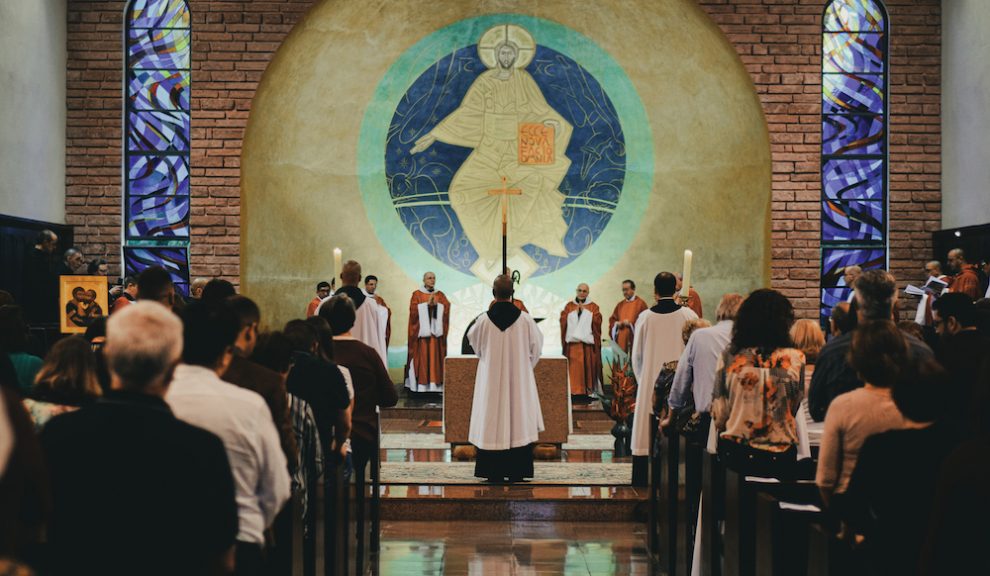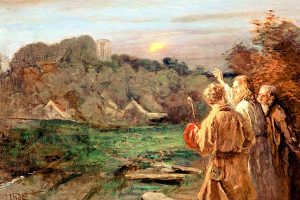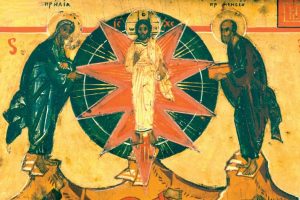During the late spring of this unforgettable year, the United States became embroiled in a debate over how to respond to the novel coronavirus pandemic. Debates over reopening the economy were framed in terms of deaths versus dollars or health versus wealth.
Without minimizing the tremendous and sobering health and economic impacts of the pandemic, such debates fall into what historian Jerry Muller has dubbed “the tyranny of metrics”: We end up paying attention only to what we can measure, especially in terms of individual units such as the number of deaths or the number of unemployed. This focus leads us to overlook a loss imposed by our response to the pandemic that touches our humanity most deeply: the loss of common life.
We may not be able to create a metric for it, but I think it is safe to say that the virus attacked our common life.
It is a commonplace of Catholic social teaching, and many other traditions of ethics, that humans are social creatures. We are made for life with others. We are made to live in society. The pandemic has in one sense made us more aware than ever that we live in society, remaking everyday decisions in terms of limiting viral spread. But in another way, the virus mounted its most sustained attack on our ability to be in society with others.
Philosopher Russell Hittinger explains that the heart of Catholic social teaching about the common good and solidarity hinges on understanding a society as a “group person.” What distinguishes a society from a simple collection of individuals is not only that the society has a shared aim but also that all the individuals work together to achieve that aim. The shared activity with others is not simply instrumental to the goal. It is a crucial part of it.
It is not, in the first place, large political entities that fit this description but smaller groups. The larger entities have significant responsibilities for the conditions under which such groups flourish or fail. But the smaller groups are where our participation really happens, where we exercise the virtue of solidarity and experience the joys (and sorrows) of common life.
We may not be able to create a metric for it, but I think it is safe to say that the virus attacked our common life. We need to attend to this in part to name accurately our loss but also, and even more important, to learn to value things that we may have taken for granted. Three areas are especially worth considering.
Work
While the headlines are dominated by money losses, Catholic social teaching argues that work is more than a paycheck: It is inherently human and dignifying. St. Pope John Paul II teaches that work is one way we are made in the image of God. Of course, many have lost work because of the crisis. Yet those who continued working also often did so in a diminished state, whether as frantic, distanced essential workers at grocery stores, warehouses, and hospitals or as isolated teachers trying to connect with students through technology.
All of this work was miraculous—we had resources to stay connected that even 10 years ago were rare—but we shouldn’t lose sight of how diminished the work was. John Paul II writes that a business is not about profit or even products but is first and foremost a “community of persons . . . who form a particular group at the service of the whole of society.” The virus has diminished greatly the sense of common life that good work should provide.
Play
A second aspect of common life might be termed play. Although I was thankful that I could continue to run during the pandemic, I missed the Saturday morning group I’d connected with. As in Hittinger’s definition, the group was not merely a matter of getting together so everyone could meet their individual exercise goals. It was about doing so together, capped off by coffee and breakfast at the local Panera. I have also never missed baseball more—not because I go to so many games, but because the Washington Nationals’ season meant D.C. was becoming a “baseball town,” where people wore gear and chatted in public over players and the team. These two examples are of course much less vital to our lives than good work. But these losses of shared play are in everyone’s lives.
The Catholic parish
Finally, we missed the common life that is the Catholic parish. This is our common life before God and with others. Through all the eras of my life, I have never had to live without it. Parishes did an incredible job ramping up quickly to provide virtual Masses and other substitutes. But like online teaching and replays of classic sports, these were substitutes. More than ever, we hopefully have come to recognize that one can’t be religious alone, that the common life is the essence of our faith.
What deep lessons might we learn from all this? For me, the deprivations—a kind of extended, involuntary Lent—have reminded me of what I must truly cherish in my life. It seems trite to say that people matter the most.
We all know that, but now I feel like I know that in my bones. Whether at work, play, or worship, I’m now reminding myself that what’s most valuable is not the activity but the common life sustained around and through it. This is society. This is what Pope Benedict XVI describes in his encyclical Spe Salvi (In Hope We Are Saved) as “eternal life”—not life that goes on endlessly but full, real, genuine life. Because, after all, it prefigures the ultimate common life of the heavenly kingdom, of human unity restored.
As we delight in our return to the common life for which we are made, let us remember that Catholic teaching first and foremost calls us to invite in others.
Of course, we are not there yet. A second lesson to learn is that many are left out of our societies. It is unfortunate but true—and evidenced all too clearly in scripture—that our deepest joys in common life with (some) others may rest on the exclusion of (other) others. If we are to delight in the recovery of common life, we need to recognize how impoverished life is for those who may have long been excluded from it.
As we delight in our return to the common life for which we are made, let us remember that Catholic teaching first and foremost calls us to invite in others who need participation in common life. Often enough, this will be hard for everyone involved. But as Pope Francis notes, Jesus “hopes that we will stop looking for those personal or communal niches which shelter us from the maelstrom of human misfortune and instead enter into the reality of other people’s lives. . . . Whenever we do so, our lives become wonderfully complicated and we experience intensely what it is to be a people.”
Certainly, one response to our collective experience of pandemic will be people retreating to their “niches” to be safe from the “maelstrom of human misfortune.” Jesus did not seek escape but participation. That, above all, is real Christian society, however complicated. Let us embrace that complication now, so that our work, our play, and especially our church may prefigure the great society of unity that is to come.
This article also appears in the August issue of U.S. Catholic (Vol. 85, No. 8, pages 40-41). Click here to subscribe to the magazine.
Image: Unsplash.com/Mateus Campos Felipe














Add comment